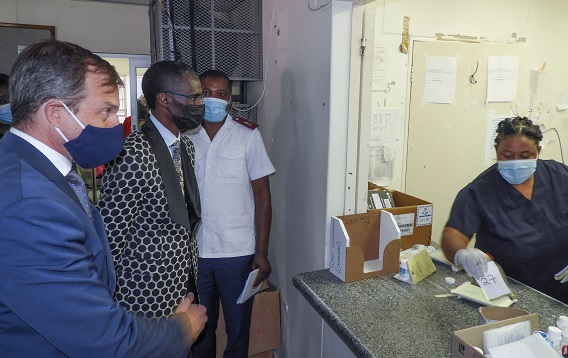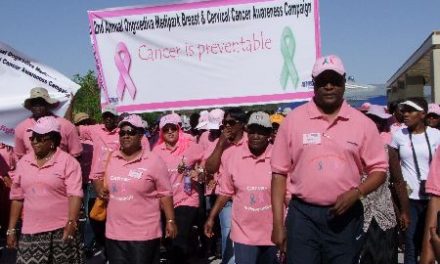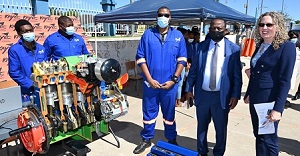
20,000 more orphans and vulnerable children receive U.S.-funded HIV support services

The U.S. President’s Emergency Plan for AIDS Relief (PEPFAR) at a ceremony held late last month outlined the expansion of its support from 14 to 18 districts in eight regions, adding 20,000 new beneficiaries.
Over the past seven years, the U.S. government has supported close to 60,000 Namibian orphans and vulnerable children (OVC) affected by HIV with services.
The project focuses on mitigating the impact of HIV on at-risk populations such as OVC and their caregivers, adolescent girls and young women, as well as key populations. The services provided include HIV risk assessment, prevention of HIV and sexual violence skills training, sexual reproductive health education, socio-economic and psychosocial services, parenting skills training, as well as referrals for education, civil, legal and social protection. The program is implemented by Project HOPE Namibia through the United States Agency for International Development (USAID).
“This work is an important contribution toward achieving HIV epidemic control through a comprehensive response for families that provides community-based treatment, care and support interventions to children and their caregivers that are living with or are affected by HIV,” highlighted Acting USAID Health Office Director Daniel Lee.
“PEPFAR will continue funding OVC programs with over US$4 million this year or N$56 million to ensure that OVC services are continued and expanded in 18 districts.”
The four new expansion districts are Okongo in Ohangwena Region, and Outapi, Okahao and Tsandi in Omusati region. The expansion will provide full coverage to all districts in the Ohangwena and Omusati Regions.
Since the inception of the program in 2013, more than 59,000 orphans and vulnerable children have received support services, and an estimated 278,000 OVC were registered for government-funded social grants with the Ministry of Gender Equality, Poverty Eradication and Social Welfare. These cash transfers help the family and the child meet their daily expenses including food, school supplies and clothing.
 Acting USAID Namibia Health Director, Daniel Lee (left), and Omusati Region Governor, Erginus Endjala (right), engaging with pharmacist assistant Natalia Josef during their tour of the Outapi ART Clinic.
Acting USAID Namibia Health Director, Daniel Lee (left), and Omusati Region Governor, Erginus Endjala (right), engaging with pharmacist assistant Natalia Josef during their tour of the Outapi ART Clinic.











































